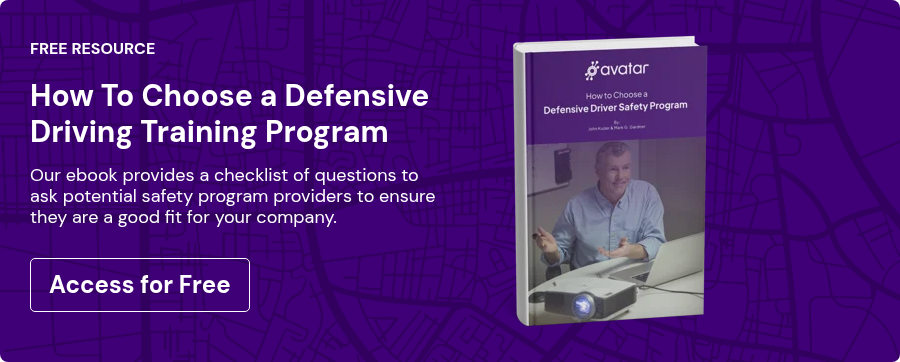What Are The DOT Requirements For Non-CDL Drivers’ DQF?
John Kuder
March 30, 2022
Did you know that you may be required to keep driver qualification files for non-CDL drivers?
It’s a common misconception - only commercial carriers with CDL drivers need to worry about DOT compliance. The reality is that, even if you only have non-CDL drivers, you may be regulated by the DOT as well.
It can be difficult to sift through all the rules and regulations necessary for your company to stay in compliance. That’s why we wanted to cover a few important points:
- How do you know if you’re regulated by the DOT?
- What are the requirements that you need to comply with?
- Does staying in compliance help reduce accidents?
When you understand these three questions, you can stay in compliance, reduce your accidents, reduce your cost of loss, and protect your people.
Who Falls Under DOT Compliance?
For DOT compliance, heavy-duty vehicles such as tractor-trailers and motorcoaches most often come to mind. However, even if you only have non-CDL drivers, you may still need to maintain driver qualification files (DQF). DOT compliance is determined by vehicle weight.
You need DQFs for any interstate drivers of vehicles that have a gross vehicle weight (GVW), gross vehicle weight rating (GVWR), gross combination weight (GCW) or gross combination weight rating (GCWR) of more than 10,001 pounds. However, you only need a CDL for a vehicle that is 26,001 pounds. Therefore, you might only have non-CDL drivers and still need to maintain DOT compliance.
Besides vehicle weight, you’ll need to maintain DQFs for any interstate driver who is:
- Transporting hazardous materials
- Transporting more than 8 people (including themselves) for compensation
- Transporting more than 15 people (including themselves) for no compensation
As a word of caution, requirements may change slightly from state to state. Contact the agency that regulates your state’s commercial motor vehicles to find out what applies to you.
What Are The DOT Requirements You Need to Follow?
If you have non-CDL drivers and you fall into any of the above categories, you have certain DQFs that you need to keep.
Based on section 391.51 from the Federal Motor Carriers Safety Administration, you need to maintain DQFs on:
- Driver’s employment application
- State motor vehicle record (MVR) at the time of hire
- Verification of past employment
- Road test certification
- Medical exam and certificate of exam
- Annual MVR
- Annual list of violations
If you want to learn how to keep these records up to date, check out our proven process for DQF management.
If You're in Compliance, Are Your Drivers Less Likely to Have Accidents?
Absolutely not. Compliance does NOT equal safety.
Editors Note: Grab our free DQ File Checklist to ensure DOT compliance! Download the free PDF here: DQ File Checklist (PDF)
Yes, these rules are necessary and exist in order to predict a driver’s risk of causing an accident. However, on their own, they do next to nothing to prevent accidents.
Accidents have very little to do with motor vehicle reports, road test certifications, and applications. Rather, accidents are caused by people and their unsafe behaviors. That’s why you need to educate your drivers on essential safe driving practices.
We’ve talked about the best ways to prevent accidents many times. You can:
- Use safety training in your onboarding process
- Host monthly safety meetings on a pressing issue
- Invest in an online defensive driving program like The Fleet Safety Course
Regardless of the exact approach you take, just remember that compliance is not making you safer. If you want to reduce accidents, you need to focus on reducing unsafe behaviors with defensive driving training.
By investing in defensive driving training, you will become a more efficient operation, reduce your cost of loss, and protect your people. Then, at the end of the day, you will have much more time to deal with the necessary evil of compliance.
Sign up for our newsletter
Get the latest articles on all things transportation delivered straight to your inbox.
Schedule a live demo


